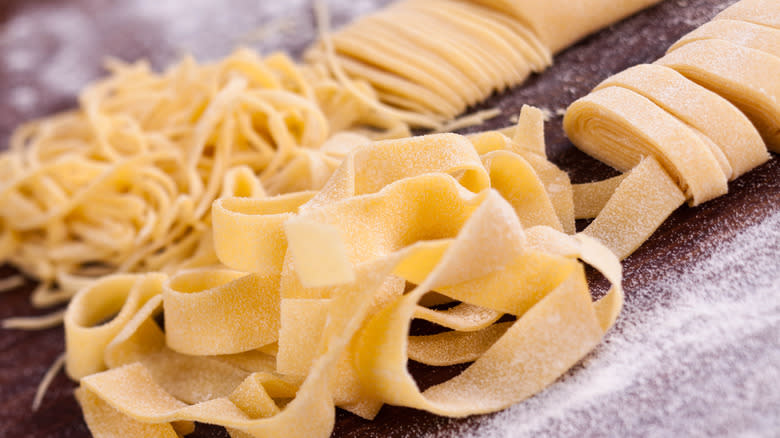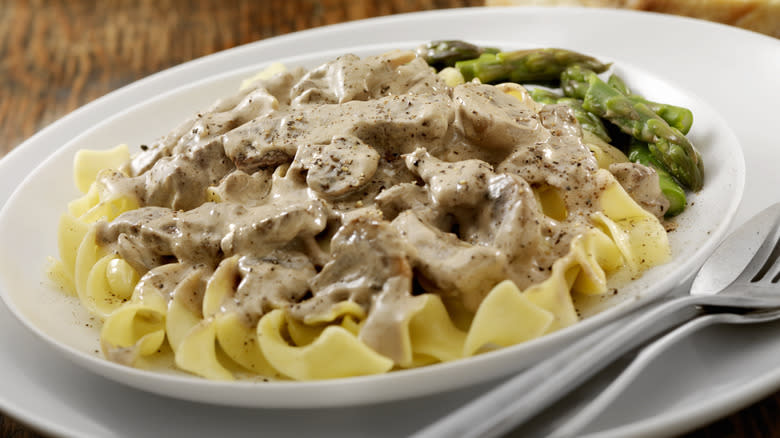Why Egg Noodles Aren't As Gluten-Free As You Might Think

We may receive a commission on purchases made from links.
Avoiding gluten isn't always the trickiest part of following a gluten-free diet. While it can be tough to avoid certain foods, figuring out which foods are safe to consume can be as precarious. We all know that if you're gluten-free, you should avoid anything with wheat and its derivatives, including certain bread and types of pasta. But this protein may pop up in the most unexpected places, including soy sauce, licorice, and whiskey. And if you gravitate toward egg noodles, thinking they're a gluten-free alternative to classic pasta, you may want to think twice.
At first glance, it sounds like noodles made from eggs should be a safe bet. Upon closer inspection, however, these packages typically contain two ingredients: Eggs and wheat flour. Store-bought versions may have some additional ingredients, such as folic acid and riboflavin, but if you make these noodles at home, all you need are the two main elements and a little salt. While the eggs create a more vibrant yellow hue and a deeper savory flavor, the wheat flour places it squarely in the gluten-filled category.
Read more: 44 Types Of Pasta And When You Should Be Using Them
An Eggcellent Gluten-Free Replacement

Luckily, in today's day and age, practically everything can be made gluten-free -- and egg noodles are no exception. If you want to use egg noodles in your chicken soup or make it the base for a fancy beef stroganoff, you need to know where to look to nab the right product. Brands like Manischewitz make copycat versions (called "Yolk Free Noodle Style Pasta") that still include pasteurized egg whites, along with tapioca starch, dehydrated potato flakes, and modified potato starch. Other brands may incorporate rice flour and egg yolk, the former of which is blissfully gluten-free. Prepping these noodles is very similar to the gluten-filled types: Boil them for just a few minutes (following package instructions), then drain and add them to your dish like you normally would.
If you like to take on new projects in the kitchen, it's also possible to make gluten-free egg noodles at home. You'd use almost the same ingredients (eggs and salt), but swap out the wheat flour with a gluten-free mix. Make sure your new flour has a binder, such as xanthan gum, that will hold everything together and make up for its lack of protein. Whichever direction you go, you can still enjoy all the deliciousness of egg noodles without any unpleasant reactions from gluten.
Read the original article on Tasting Table